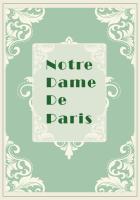Grain, the food of the common people, is dearer in Scotland than in England, whence Scotland receives almost every year very large supplies.But English corn must be sold dearer in Scotland, the country to which it is brought, than in England, the country from which it comes; and in proportion to its quality it cannot be sold dearer in Scotland than the Scotch corn that comes to the same market in competition with it.The quality of grain depends chiefly upon the quantity of flour or meal which it yields at the mill, and in this respect English grain is so much superior to the Scotch that, though often dearer in appearance, or in proportion to the measure of its bulk, it is generally cheaper in reality, or in proportion to its quality, or even to the measure of its weight.The price of labour, on the contrary, is dearer in England than in Scotland.If the labouring poor, therefore, can maintain their families in the one part of the United Kingdom, they must be in affluence in the other.Oatmeal indeed supplies the common people in Scotland with the greatest and the best part of their food, which is in general much inferior to that of their neighbours of the same rank in England.This difference, however, in the mode of their subsistence is not the cause, but the effect of the difference in their wages; though, by a strange misapprehension, I have frequently heard it represented as the cause.It is not because one man keeps a coach while his neighbour walks afoot that the one is rich and the other poor;but because the one is rich he keeps a coach, and because the other is poor he walks afoot.
During the course of the last century, taking one year with another, grain was dearer in both parts of the United Kingdom than during that of the present.This is a matter of fact which cannot now admit of any reasonable doubt; and the proof of it is, if possible, still more decisive with regard to Scotland than with regard to England.It is in Scotland supported by the evidence of the public fiars, annual valuations made upon oath, according to the actual state of the markets, of all the different sorts of grain in every different county of Scotland.
If such direct proof could require any collateral evidence to confirm it, I would observe that this has likewise been the case in France, and probably in most other parts of Europe.With regard to France there is the clearest proof.But though it is certain that in both parts of the United Kingdom grain was somewhat dearer in the last century than in the present, it is equally certain that labour was much cheaper.If the labouring poor, therefore, could bring up their families then, they must be much more at their ease now.In the last century, the most usual day-wages of common labour through the greater part of Scotland were sixpence in summer and fivepence in winter.Three shillings a week, the same price very nearly, still continues to be paid in some parts of the Highlands and Western Islands.Through the greater part of the low country the most usual wages of common labour are now eightpence a day; tenpence, sometimes a shilling about Edinburgh, in the counties which border upon England, probably on account of that neighbourhood, and in a few other places where there has lately been a considerable rise in the demand for labour, about Glasgow, Carron, Ayrshire, etc.In England the improvements of agriculture, manufactures, and commerce began much earlier than in Scotland.The demand for labour, and consequently its price, must necessarily have increased with those improvements.In the last century, accordingly, as well as in the present, the wages of labour were higher in England than in Scotland.They have risen, too, considerably since that time, though, on account of the greater variety of wages paid there in different places, it is more difficult to ascertain how much.In 1614, the pay of a foot soldier was the same as in the present times, eightpence a day.
When it was first established it would naturally be regulated by the usual wages of common labourers, the rank of people from which foot soldiers are commonly drawn.Lord Chief Justice Hales, who wrote in the time of Charles II, computes the necessary expense of a labourer's family, consisting of six persons, the father and mother, two children able to do something, and two not able, at ten shillings a week, or twenty-six pounds a year.If they cannot earn this by their labour, they must make it up, he supposes, either by begging or stealing.He appears to have inquired very carefully into this subject.In 1688, Mr.Gregory King, whose skill in political arithmetic is so much extolled by Doctor Davenant, computed the ordinary income of labourers and out-servants to be fifteen pounds a year to a family, which he supposed to consist, one with another, of three and a half persons.His calculation, therefore, though different in appearance, corresponds very nearly at bottom with that of Judge Hales.Both suppose the weekly expense of such families to be about twenty pence a head.Both the pecuniary income and expense of such families have increased considerably since that time through the greater part of the kingdom; in some places more, and in some less; though perhaps scarce anywhere so much as some exaggerated accounts of the present wages of labour have lately represented them to the public.The price of labour, it must be observed, cannot be ascertained very accurately anywhere, different prices being often paid at the same place and for the same sort of labour, not only according to the different abilities of the workmen, but according to the easiness or hardness of the masters.Where wages are not regulated by law, all that we can pretend to determine is what are the most usual;and experience seems to show that law can never regulate them properly, though it has often pretended to do so.















